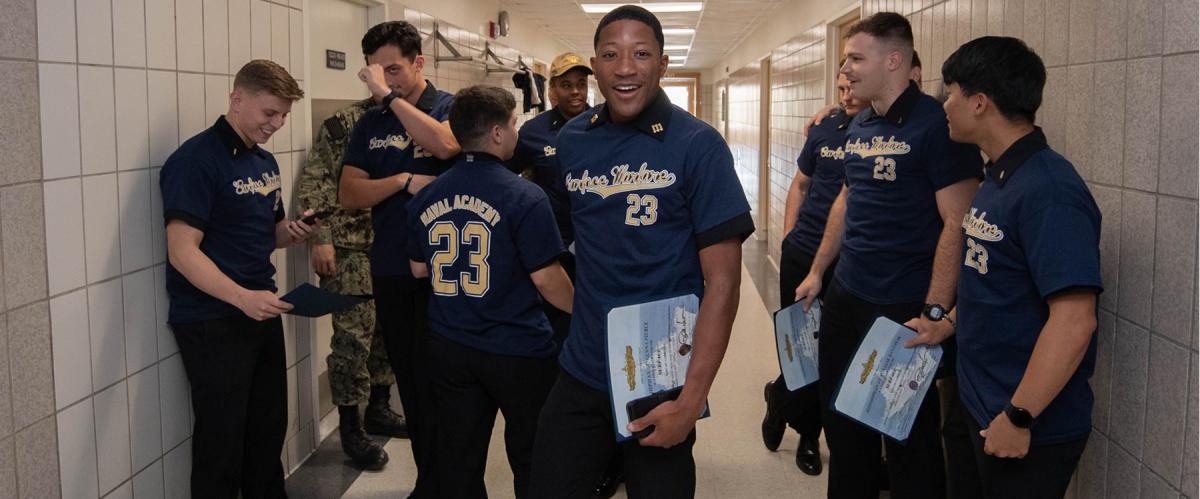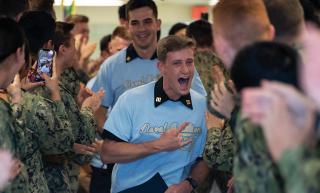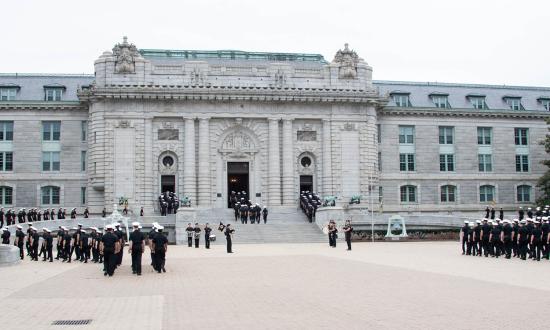On 10 March 2021, Planet Money’s podcast episode “Nigeria, YouWin!” provided a fresh take on one of the Navy’s current debates: How does the service maintain warfighting readiness while addressing diversity, equity, and inclusion? Examining Navy officer accessions offers insight on one option to address this challenge.
In 2011, Nigeria launched a business plan competition called YouWin! to deliver training and grant money to small businesses. While contests such as this are common, YouWin! was unique: More than half of the winners were chosen at random. When the World Bank checked on the contestants in 2017, they found that the winners’ businesses survived and profited at a higher rate regardless of whether they were selected on merit or at random.1
The Navy, by comparison, assigns midshipmen to warfare communities in a much more traditional way. Each community varies slightly, but all use a similar process: Accession board members review midshipmen records and assign average “confidence scores” through an iterative process to choose selects. While the top picks are obvious, the differentiation starts to disappear after a point.
While this selection method has produced outstanding operational results, the potential for bias is baked into the process. First, midshipmen records contain a variety of subjective aptitude assessments generated by officers, peers, and instructors who all have an inherent, if unconscious, bias. Add to this possible mirror imaging by the board members (people tend to favor people who look and behave like them), and a process meant to select the best officers incurs an avoidable selection error.
The following approach could address this problem:2
1. Warfare communities establish data-driven minimums for physical performance, cognitive capacity, and psychometric suitability. Midshipmen who do not meet these minimums are dropped from further consideration. However, everyone who meets the minimum is “good enough.”
2. Each community selects 95 percent of its quota using the traditional method.
3. Each community randomly selects the remaining 5 percent of the quota, rounding up to ensure at least one wild card from each accession source. This number could be much higher, but 5 percent would be enough to determine if random selects do as well as traditional selects during their initial service obligation.
4. Run this as a pilot program for five years, monitoring success rates of traditional selects versus wild cards.
Imagine an unrestricted line community has 30 accession quotas from the Naval Academy. Using this method, the board members would use the traditional method to select 28 Naval Academy midshipmen and issue two wild cards, randomly selected from the non-selects who met the data-driven minimums. In other words, if 60 qualified Academy midshipmen applied to this unrestricted line community, there would be 32 “good enough” midshipmen considered for two randomly assigned wild cards.
Applying Pareto’s Principle, which states that 80 percent of any given output is the result of 20 percent of the input, 80 percent of the selection bias likely occurs in the final 20 percent of the selects using the current model. This is where family ties, letters of recommendation, and other subjective factors such as alma mater or participation in college sports exert a disproportionate influence on candidates who, broadly speaking, are all equally qualified. Issuing wild cards addresses this perceived unfairness while also acknowledging that, even in the most impressive midshipmen, there is some selection error based on the delta between available data and perfect information.
In his book Outliers, Malcom Gladwell explores this idea of “good enough” through the lens of intelligence:
The relationship between success and IQ works only up to a point. Once someone has reached an IQ of somewhere around 120, having additional IQ points doesn’t seem to translate into any measurable real-world advantage. . . .
IQ is like height in basketball. A basketball player only has to be tall enough—and the same is true of intelligence. Intelligence has a threshold.
The psychologist Barry Schwartz recently proposed that elite schools give up their complex admissions process and simply hold a lottery for everyone above the threshold. “Put people into two categories,” Schwartz says. “Good enough and not good enough. The ones who are good enough get put into a hat. And those who are not good enough get rejected.”3
In pursuit of selecting the best, some communities may hold hidden biases that will continue to manifest in the bottom selects using current methods. Among a cohort that is all “good enough,” these communities may be overemphasizing trainable and coachable traits while biasing against candidates who do not have equal access to training facilities or mentors based on geographic location or other socioeconomic factors. These biases do not improve with time and are self-reinforcing—advantages and privileges pass from parents to children along wealth lines.4
If the idea of making a portion of the officer selection process for midshipmen random makes leaders uncomfortable, consider how the United States issues visas. Every year, prospective citizens apply for 50,000 diversity immigrant visas assigned randomly through a lottery.5 If the Navy should represent the population it defends, there should be some allowance for chance, serendipity, and swerve among future naval officers.
1. David McKenzie, “Identifying and Spurring High-Growth Entrepreneurship: Experimental Evidence from a Business Plan Competition,” American Economic Review 107, no. 8 ( August 2017).
2. These ideas could also be applied to commanding officer, executive officer, and department head administrative screening boards.
3. Malcolm Gladwell, Outliers (New York: Little, Brown and Company, 2008).
4. Ray Dalio, Principles for Dealing with the Changing World Order: Why Nations Succeed and Fail (New York: Avid Reader Press, 2021).
5. U.S. Citizenship and Immigrant Visa Service, “Green Card through the Diversity Immigrant Visa Program.”







